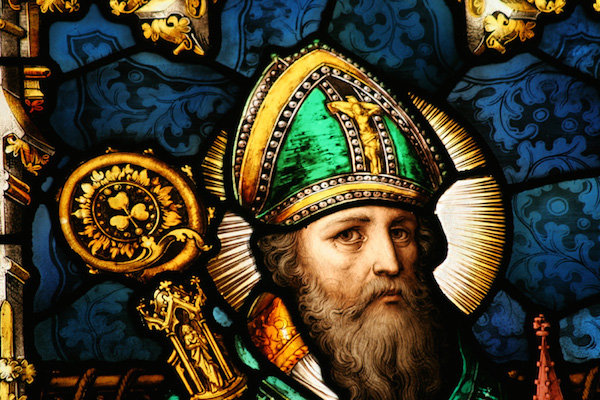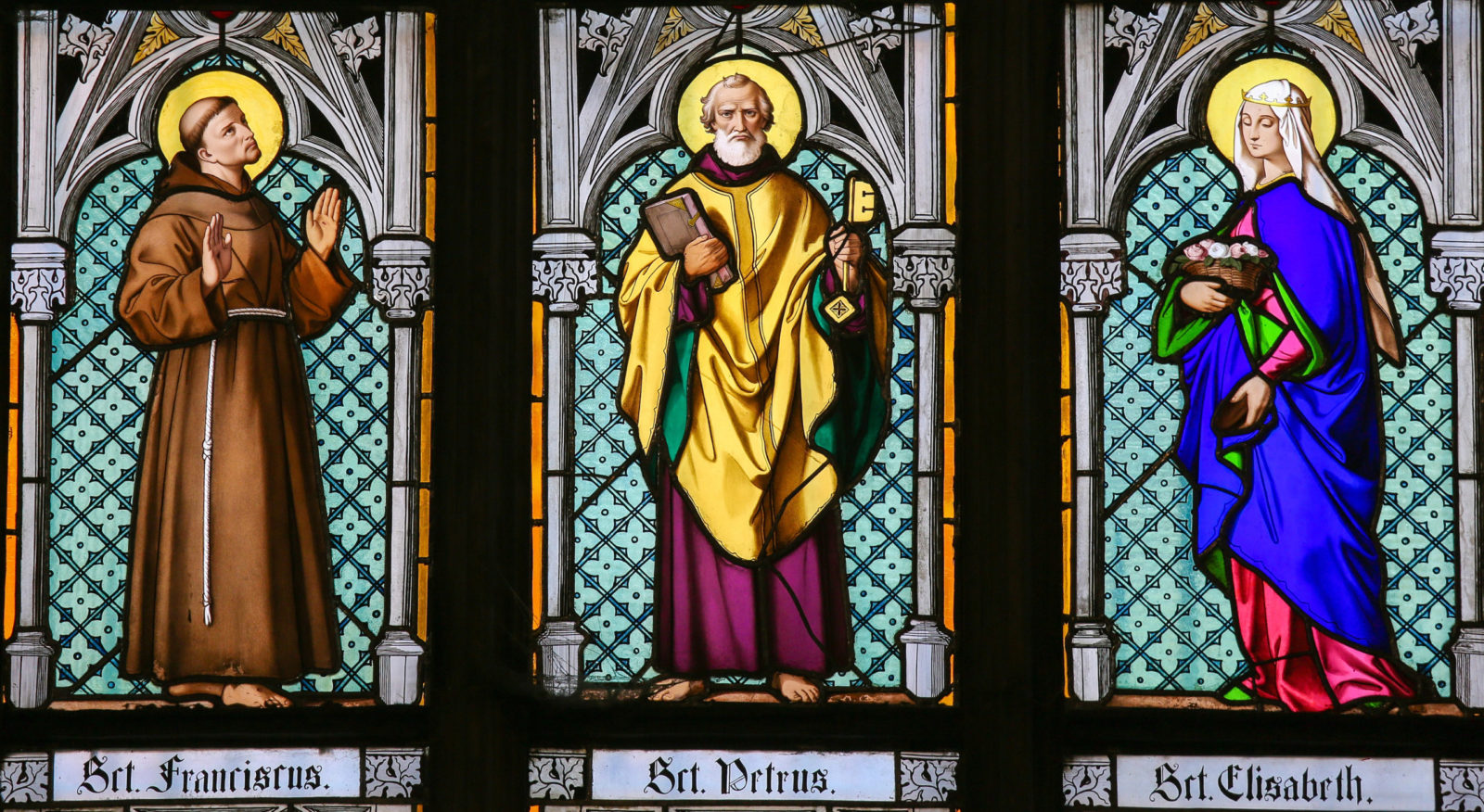Saint Gabriel McKinney - Exploring The Concept Of Holiness
The notion of a "saint" is something that has, for a very long time, captured human thought and wonder. When we come across a name like "saint gabriel mckinney," it naturally sparks a bit of curiosity. What does it truly mean to be called a saint, and how does this idea connect with individuals in our modern world? This exploration isn't just about ancient figures; it's about understanding a concept that continues to shape beliefs and inspire people today, you know, in many different ways.
The text we're looking at offers some interesting insights into what a saint is, describing them as someone recognized for having an exceptional degree of holiness, or perhaps a unique closeness to a higher power. It's about a person who embodies a certain moral perfection or possesses truly remarkable teaching abilities. This definition, you might say, goes beyond just religious titles; it speaks to a quality of spirit and action that resonates deeply with others, which is pretty profound, actually.
As we consider the various ways the term "saint" is used, from formal church recognition to more everyday expressions of admiration, it becomes clear that its meaning can be quite fluid. Whether it's a historical figure, a spiritual guide, or even a person whose name simply carries the word, like someone named "saint gabriel mckinney," the underlying idea is about a life lived with purpose and a positive impact on the world. This broad understanding helps us appreciate the many facets of what it means to be considered a "saint," anyway.
- Is Cal Raleigh Married
- Tails Comic Two Babies One Fox
- Iran And Pakistan Map
- Timothy Olyphant A Multifaceted Talent In Hollywood
- Roma Downey Feet
Table of Contents
- Understanding What "Saint" Means
- Who is a "Saint" in Modern Contexts?
- Biographical Insights - A Look at Jessie Saint
- What Makes Someone a "Holy Person"?
- Saints as Teachers and Inspirations
- What Role Do Saints Play in Community?
- The Broader Meaning of "Saint" in Everyday Language
- What Can We Learn from the Concept of "Saint"?
Understanding What "Saint" Means
The idea of a "saint" is, in some respects, quite a broad one, as you know. It tends to be about a person recognized for their exceptional connection to the sacred, or perhaps for showing a truly remarkable level of goodness. The text mentions, for example, how a saint is someone seen as having a special bond with God, or showing a likeness to divine qualities. This definition, you might say, is pretty central to many beliefs. It’s not just about religious figures; it’s about a way of living that stands out, a life that demonstrates a profound spiritual or moral commitment, basically.
For many, particularly in the Christian tradition, a saint is someone who has, in fact, lived in a good and holy way, earning an official honor from the church, especially the Roman Catholic Church. This process often involves canonization, which is basically a formal recognition of their preeminence in holiness. The New Testament, however, actually uses the term more broadly, referring to all who believe in Jesus Christ and follow his teachings. So, in that sense, anyone truly dedicated to their faith could be considered a saint, more or less, in a very fundamental way, reflecting a deep personal devotion and adherence to spiritual principles, you see.
The concept goes beyond just official titles, too it's almost. A saint is often described as someone who knows the truth, both the difficult parts about human failings and the hopeful message of salvation. They are seen as a true scientist, someone who seeks understanding, and a true philosopher, someone who reflects deeply on life's big questions. This really suggests that the idea of a saint is about wisdom and insight, not just piety. It’s about a person who has, perhaps, a deeper grasp of things, like your own thoughts on someone like saint gabriel mckinney, someone who embodies profound knowledge and spiritual depth, anyway.
- Morgan Wallen Concert Length
- Iran New Currency
- Exploring The Race Of Steve Perry A Deep Dive Into His Background And Legacy
- Horses Mating
- Leaked Scarswonderland
Who is a "Saint" in Modern Contexts?
Is "saint gabriel mckinney" a traditional saint?
When we hear a name like "saint gabriel mckinney," it naturally makes us wonder about the person behind it. Is this someone recognized by a church, or is it a different kind of "saint"? The text gives us some clues, you see. It talks about how the term "saint" can depend on the context. Sometimes, it’s an official title, but other times, it simply refers to someone who is in Christ, whether here on earth or in heaven. So, it's not always about a formal process; it can be a way of seeing someone's spiritual state, or even just a part of their given name, which is interesting, actually, suggesting a more personal or informal use of the word.
The example of Jessie Saint, an American actress, helps illustrate this point, in a way. Her name includes "Saint," but she is known for her work in the AV industry, not for religious canonization. This shows that "Saint" can be part of someone's identity without implying traditional religious holiness. So, when we think about someone named "saint gabriel mckinney," it prompts us to consider these different uses of the word. It could be a given name, a nickname, or perhaps a hopeful description by others, you know, like someone who acts with great goodness, showing kindness and integrity in their daily life.
The question of whether "saint gabriel mckinney" fits a specific definition of "saint" is, therefore, a bit open. Is it about exemplary moral perfection, or perhaps exceptional teaching abilities, as the text mentions? Or is it simply a name that carries a certain resonance? The way the word "saint" is used can be very widespread, appearing in many different contexts. This means we should be careful not to assume a single meaning when we encounter such a name, which is pretty important, really, reminding us to consider the various interpretations and cultural applications of the term, anyway.
Biographical Insights - A Look at Jessie Saint
While we don't have direct biographical details for "saint gabriel mckinney" from our source, we do have some interesting information about another individual whose name includes "Saint." This is Jessie Saint, an American actress. Her presence in the text reminds us that the word "saint" can appear in many different walks of life, and it's not always about religious figures. She works in the AV industry, which is a rather different field from traditional spiritual work, you might say, highlighting the diverse contexts in which the term can be found.
Jessie Saint was born on March 7, 2000, and she comes from Las Vegas, Nevada, in the United States. These details, though brief, give us a sense of a real person living in the present day, with a career in entertainment. It shows that names can carry historical or religious weight without the person necessarily embodying those traditional roles. It’s a good reminder that names are, in fact, just names, and they can mean many things to different people, you know, depending on their background and personal associations.
Her story, as a matter of fact, highlights how the term "saint" can be part of a modern identity, separate from the ancient definitions. It encourages us to think about how we use and perceive such words in everyday language. This kind of example helps us see the full breadth of how the word "saint" is understood and applied, perhaps even to someone like saint gabriel mckinney, if that were their given name, or a way people refer to them, anyway, demonstrating the word's adaptability and varied cultural significance.
Personal Details - Jessie Saint
| Name | Jessie Saint |
| Occupation | American actress (AV industry) |
| Birth Date | March 7, 2000 |
| Hometown | Las Vegas, Nevada, United States |
What Makes Someone a "Holy Person"?
The qualities that define a "saint" like saint gabriel mckinney.
The text explains that a "holy person" is someone who is believed to have a special connection to the sacred. This often goes hand-in-hand with showing moral perfection or having truly exceptional teaching abilities. It’s about a person whose life and actions reflect a higher purpose, or a deep goodness that inspires others. This kind of person, you know, tends to stand out in a crowd for their character and wisdom, which is pretty remarkable, demonstrating qualities that elevate them in the eyes of many, basically.
Consider Saint Peter, for instance, who is described as doing exemplary work in spreading Christianity. He was one of Jesus's twelve disciples, and his actions were seen as deeply impactful. This suggests that a saint is not just someone who believes, but someone who *acts* on those beliefs in a significant way. Their work, you might say, leaves a lasting impression, which is a very important part of their legacy, arguably, showing a profound dedication to their calling and a desire to help others, anyway.
Shah Latif, also known as Shah Abdul Latif Bhittai, is called the "saint of Bhit" because of his deep spiritual teachings and contributions to Sufism. This shows that holiness can manifest through profound wisdom and the sharing of spiritual insights. So, for someone like saint gabriel mckinney, if they were to be considered a "saint," it would likely be due to qualities like these: a deep moral compass, wisdom, or a significant positive influence on others, basically, embodying a spirit of guidance and profound understanding for those around them, you know.
Saints as Teachers and Inspirations
Beyond their personal holiness, saints are often recognized for their capacity to teach and inspire. The text mentions that a saint has "exceptional teaching abilities." This means they can convey deep truths in a way that resonates with people, helping them to grow and understand the world better. It’s about more than just knowledge; it’s about the wisdom to guide and enlighten, which is a truly special gift, in fact, allowing them to communicate complex ideas with clarity and warmth, basically.
Shah Latif's contributions to Sufism, for example, show how spiritual teachings can lead to someone being regarded as a saint. His insights helped others find their own spiritual paths. Similarly, the idea of creating engaging and effective lesson plans, as mentioned in the text, relates to this teaching aspect. It's about meeting
- Asianbunnyx Leaks
- Post Nirvana
- Ludwig Bulge
- Selena Quintanilla Outfits A Timeless Fashion Legacy
- Slang Eiffel Tower

saint - Kids | Britannica Kids | Homework Help

Who Is A Saint? - Catholic Journal

What Does Saint Mean? - Grace Theological Seminary